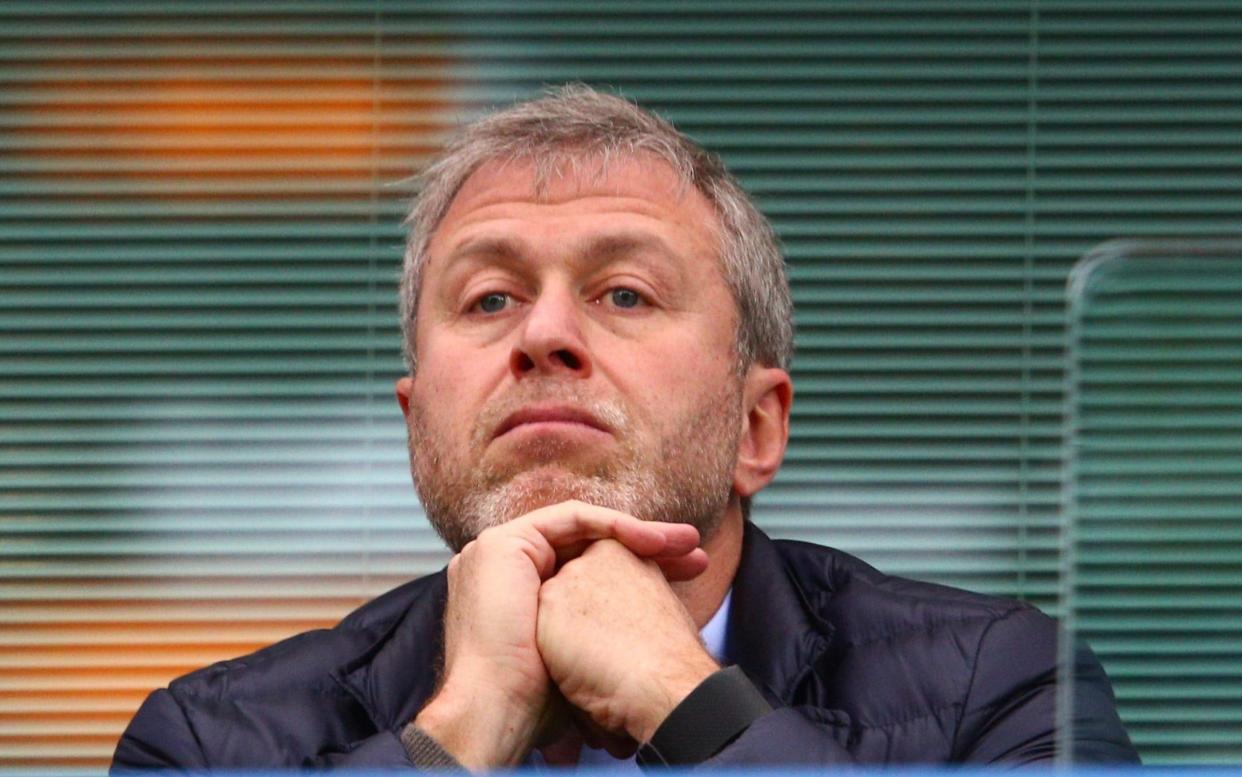Roman Abramovich ‘did not buy Chelsea FC to help Russia corrupt the West’

Roman Abramovich is not Vladimir Putin’s “willing tool” or “cashier” and did not buy Chelsea FC to help Russia corrupt the West, his lawyers have told the High Court.
The Russian billionaire is suing the journalist Catherine Belton and the publisher HarperCollins over their book, Putin’s People: How The KGB Took Back Russia And Then Took On The West, published last April.
The bestseller chronicles the Russian president’s rise to power and explores how his influence has been extended across the globe, including through loyal oligarchs.
Citing three sources, the book alleges Mr Abramovich may have bought the west London football club in 2003 on Mr Putin’s orders to “infiltrate, manipulate and corrupt the British elite”.
Mr Abramovich claims the book is “seriously defamatory”.
Ms Belton and HarperCollins are also being sued for libel by Rosneft, the Russian state-owned energy giant, while two other Russian billionaires, Mikhail Fridman and Petr Aven, sued the publisher alone.
On Wednesday, the claims came before the High Court for Mrs Justice Tipples to determine the meaning the ordinary reader would place on the material, which is the focus of the legal action.
It was announced during the hearing that HarperCollins had settled its case with Mr Fridman and Mr Aven and would remove the sections they had challenged from future editions of the book.
Hugh Tomlinson QC, for Mr Abramovich, outlined 26 passages his client claims are defamatory, including ones relating to his purchase of Chelsea Football Club for £150 million.
Readers of the book, he said, would “inevitably” conclude that Mr Abramovich was being used as “the acceptable face of a corrupt and dangerous regime”.
The barrister said Mr Abramovich was portrayed as a “willing tool” of the Kremlin, telling the court: “Putin says, ‘Buy a football club so I can infiltrate the United Kingdom’ and he does it.”
The purchase of the club was presented as “part of a scheme to corrupt the West” and to “build a bulkhead of Russian influence”, Mr Tomlinson said.
“The reader would be in no doubt as to the serious and sensational allegation being made,” he added in written arguments.
Mr Abramovich was also characterised in the book as Mr Putin’s “cashier”, which an average reader would take to mean he had a “corrupt relationship with the Russian president”, Mr Tomlinson told the court.
He said a cashier was understood in this context to mean “someone who receives and hands out money”, while the book also said Mr Abramovich was a “key Kremlin ally”.
“It is perfectly clear that is a stated allegation, that he is receiving money, handing out money on behalf of a person who is described as a corrupt president,” he told the court.
He added: “The ordinary reasonable reader thinks there is a lot of villainy going on and Mr Abramovich is part of it.”
But Andrew Caldecott QC, representing Ms Belton and HarperCollins, pointed out that the reference to Mr Abramovich being a cashier was “in quotation marks, suggesting it is someone else’s observation”.
He argued that readers of Putin’s People would believe that “there are grounds to suspect Mr Abramovich was acting at the Kremlin’s direction” when he bought Chelsea, not that this was an established fact.
The legal case represents a bumper pay day for defamation lawyers who charge as much as £750 an hour for advice.
The settlement order regarding the proceedings brought by Mr Aven and Mr Fridman against HarperCollins, however, said, “there shall be no order as to costs”.
The publisher has agreed to carry a statement on its website for eight weeks, apologising to the two oligarchs and explaining the sections of the book that will be amended.
Mr Aven had brought a data protection claim against HarperCollins, while Mr Fridman had brought a claim of libel.

 Yahoo News
Yahoo News 
